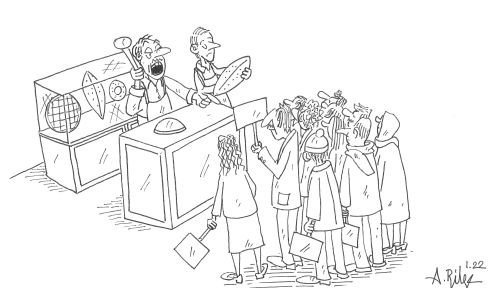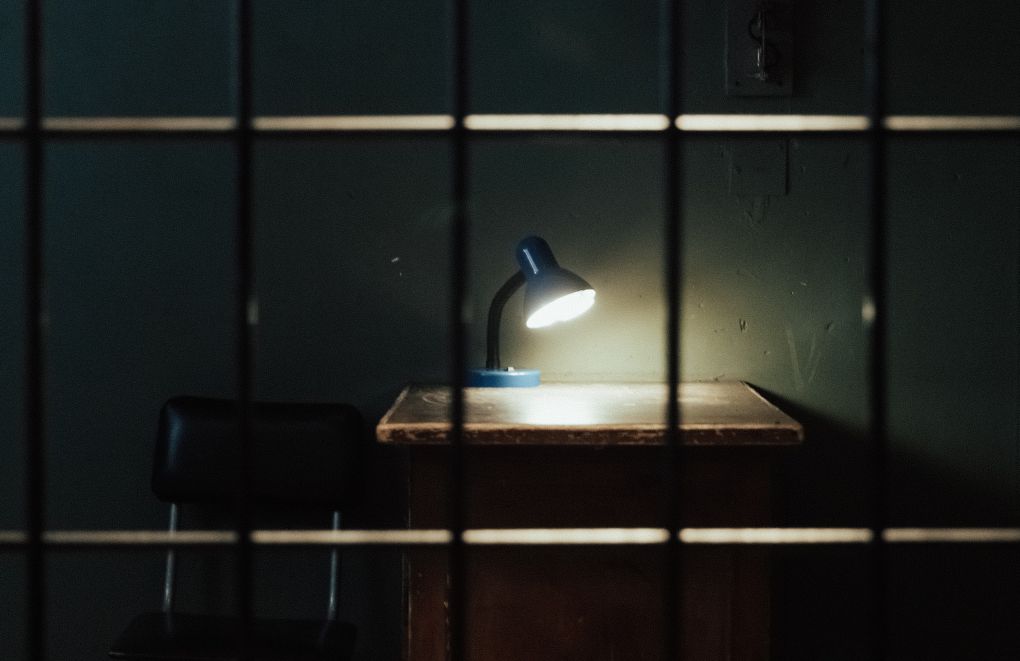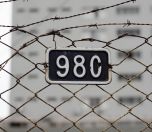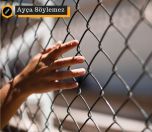Click to read the article in Turkish
Cartoonist Ahmet Bilge has taken legal action against the 200-lira electricity bill sent to the prison ward where he is held as a convict.
With his drawings occasionally published by bianet, Ahmet Bilge has been behind bars for 27 years. He is currently held in the Elbistan Type E Closed Prison in Maraş. In his latest letter to bianet, Bilge has written that the electricity bill sent to his ward has almost tripled:
"The electricity bill sent to our room - where we stay as four friends - has tripled compared to the previous month. It was around 80 lira before the price increase. This time, the bill is 200 lira. We told the official in charge that it should not cost so high. The official said that the prison is registered as a business concern and the tariff is set accordingly.
"While they should not be charging prisoners for electricity in the first place, we are now subject to a tariff as a business concern. We, of course, applied to court. If prisoners are deemed as business concerns, we are neither their owners nor operators. We will see what will come out..."
Speaking to bianet, lawyer Ayşegül Çağatay has indicated that prisons are in the capacity of public institutions, but prisoners are regarded as customers in spite of this; even though basic needs such as water and electricity are supposed to be met, they are offered to prisoners for a fee and some prisoners are not even given plates; chairs and desks are also sold to them.
Regarding the objections, Çağatay has said that as there is no counter registered in the name of the prisoner, she or he may apply to the administration and write a petition to be sent to the related institution.

- As of 2022, a graded tariff was introduced in Turkey: The consumption of up to 150 kilowatt hour started to be calculated based on a 50-percent and the consumption higher than this started to be calculated based on a 127-percent increased tariff. Since early February, this limit has been increased from 150 to 220 kilowatt hour. Starting from March 1, the Value Added Tax (VAT) levied on electricity use in households and agricultural irrigation has been reduced from 18 to 8 percent. The law tariff limit in households has also been increased to 8 kilowatt hour daily and to 240 kilowatt hour monthly.
Both cleaning and communication for a fee
In Turkey, prisoners buy their personal needs such as sanitary napkins, paper, pen, soap, shampoo, underwear and cleaning products and all food products other than daily meals from the canteens of prisons with their own money. They also pay for the electricity they use and pay for the letters they send. They are given a card to be used for these expenditures in exchange for the money deposited into their accounts from outside.
While prisoners pay for the electricity that they use by plugging devices to the sockets in their wards (such as TV, refrigerator and kettle), the costs of lighting are met by the penal institution. They also pay for their needs such as TV, refrigerator, tea urn, chest of drawers, kettle and radio.
A campaign was previously launched to ensure that basic necessities of prisoners such as sanitary napkins, baby diapers, soaps, toothbrushes and toothpaste, shampoo, grooming products, laundry and cleaning products would be offered to them free of charge.
Prisoners without money cannot even send letters
Sending a letter to bianet from the Sincan Women's Prison in Ankara, Eylem Yücel previously wrote that prisoners were prevented from paying for other prisoners' personal needs from their own accounts; the ones who had no money in their accounts could not even send letters.
Peoples' Democratic Party (HDP) Muş MP Gülistan Kılıç Koçyiğit also submitted a Parliamentary question regarding the obligation of prisoners to buy their most basic needs in Turkey's prisons.
Blankets and bed sheets are dirty
In the October 2021 report of the Civil Society in the Penal System Association (CİSST), it was documented that "in some prisons, used and dirty beds, blankets, bed sheets and bed clothes were distributed to prisoners; as only one type of food was sold at the canteen, prisoners with allergies could not buy them." (AS/SD)















